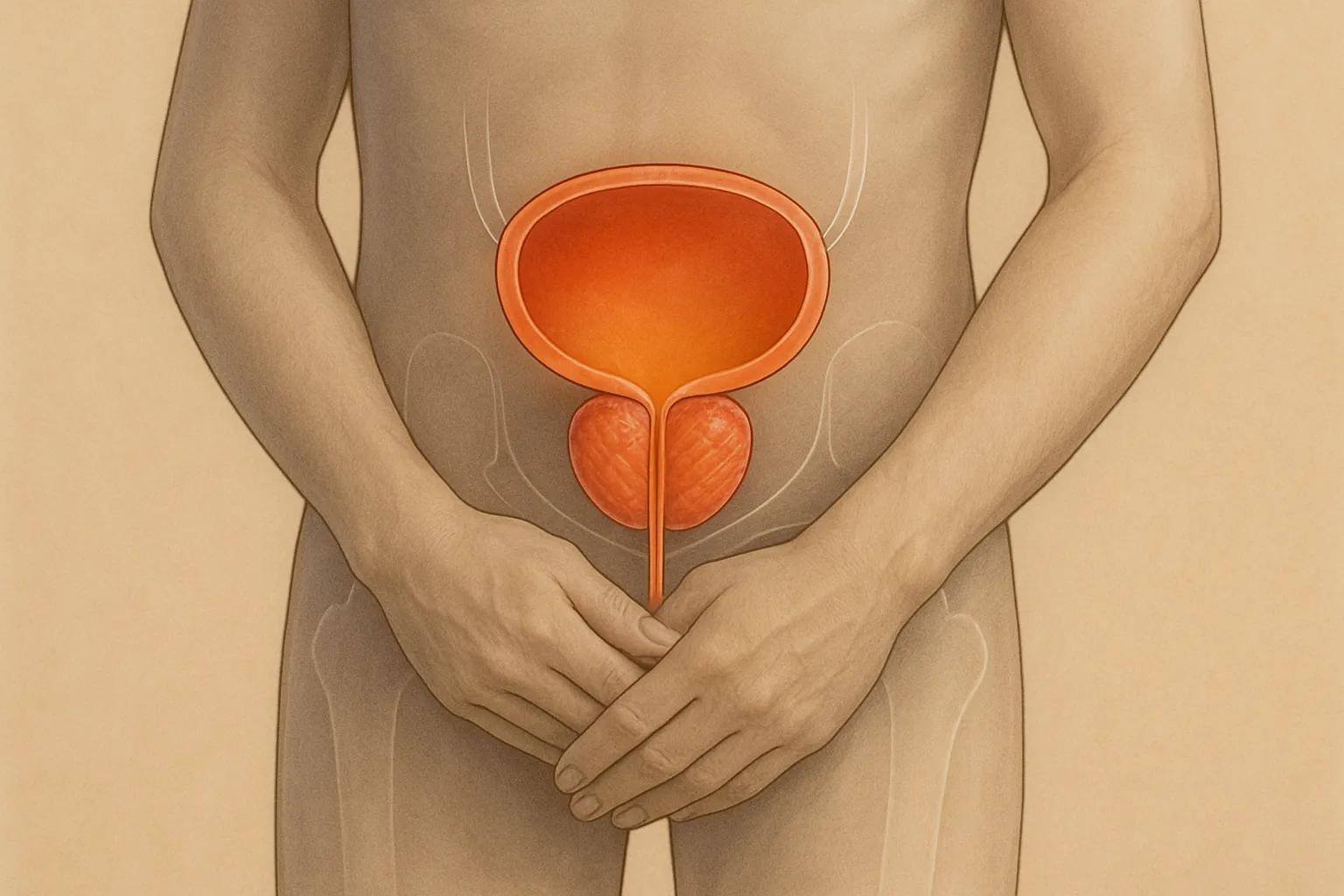The Silent Struggle Many Men Face
For generations, men have been expected to be strong, stoic, and emotionally resilient—traits deeply rooted in cultural, social, and even familial norms. From a young age, boys are often told to “man up,” “don’t cry,” or “tough it out.” These messages, while often well-meaning, contribute to a dangerous silence around mental health.
Unlike physical injuries, emotional wounds aren’t always visible. But they are just as real, and they can have lasting effects on well-being, relationships, performance at work, and even physical health. Many men suffer quietly, not because they lack the will to improve, but because they feel they aren’t allowed to speak up.
The statistics are alarming: globally, men are less likely to seek help for mental health issues, yet they are more likely to die by suicide. They are also more prone to substance abuse, untreated depression, and high levels of work-related stress. These issues aren’t confined to one age group or background—they affect teenagers, fathers, professionals, retirees, and everyone in between.
Mental health isn’t a weakness. Acknowledging it, talking about it, and taking action is a sign of strength, not failure. It’s time to break the silence.
Redefining Strength: From Suppression to Self-Awareness
Traditionally, strength has been defined by external markers—physical power, dominance, control. But as understanding of mental health evolves, strength is increasingly being recognized as the ability to be honest with oneself, to confront difficult emotions, and to seek help when needed.
Suppressing feelings doesn’t make them disappear—it simply forces them to manifest elsewhere. Anger, irritability, numbness, withdrawal, and burnout are all signs that something deeper may be going on. Many men find it easier to express frustration than sadness, or to work longer hours instead of addressing anxiety.
Real strength comes from self-awareness: knowing when you’re struggling, acknowledging that you’re human, and being brave enough to reach out. This requires courage, not weakness. It’s a different kind of toughness—the kind that builds resilience and leads to genuine growth.
The Cost of Staying Silent
Silence around mental health is not harmless. When emotional struggles are ignored, they often worsen over time and start affecting every aspect of a man’s life. Relationships can suffer, work productivity may decline, sleep can become disrupted, and unhealthy coping mechanisms like drinking, overeating, or isolation can take over.
Untreated depression and anxiety also increase the risk of physical health conditions. Chronic stress contributes to high blood pressure, heart disease, digestive issues, and weakened immunity. Mental and physical health are deeply interconnected—neglecting one eventually harms the other.
In workplaces, the consequences are just as significant. Men who don’t address mental health concerns may become disengaged, less communicative, and prone to absenteeism or presenteeism (being physically present but mentally checked out). For leaders, entrepreneurs, or high-performers, burnout can hit especially hard because they often tie their identity to their achievements.
When men break the silence, they’re not just helping themselves—they’re helping their families, friends, colleagues, and communities by setting an example and encouraging others to do the same.
Why Men Are Less Likely to Seek Help
Understanding the barriers that prevent men from speaking up is the first step to overcoming them. These obstacles are often subtle but deeply rooted:
- Cultural conditioning: Many societies equate masculinity with emotional toughness and independence. This leads men to believe that admitting distress is a sign of failure or weakness.
- Fear of judgment: Concerns about being seen as “less capable” or “unstable” can stop men from opening up, especially in professional environments.
- Lack of emotional vocabulary: Some men were never taught how to recognize or label their emotions. This makes it difficult to even know how to ask for help.
- Limited support networks: While women often have multiple outlets for emotional connection, many men rely solely on a partner or no one at all.
- Stigma around therapy: There’s a lingering belief that therapy is only for people with “serious problems” rather than a proactive tool for anyone who wants to improve mental well-being.
These factors create a perfect storm of silence, where men feel isolated but don’t feel safe enough to reach out. Reversing this trend requires both individual action and collective change.
The Role of Social Connection and Vulnerability
One of the most powerful ways to improve men’s mental health is through authentic connection—the kind that goes beyond surface-level conversation and allows space for vulnerability. This doesn’t mean constantly baring your soul to strangers. It means having one or two people—a friend, brother, partner, or coach—you can be real with.
Men who regularly connect with others on a meaningful level tend to experience lower rates of depression, anxiety, and stress. Genuine conversations create a sense of belonging and safety that’s essential for emotional health.
Unfortunately, many men lose these types of friendships as they age. Work, family, and responsibilities often take precedence, and maintaining deep friendships takes effort. But rebuilding connection is worth the work. Whether it’s grabbing coffee with a friend, joining a group or club, or even scheduling regular check-ins, consistent social contact strengthens the emotional safety net every man needs.
It also helps to reframe vulnerability. Being open doesn’t mean being weak or broken—it means being real. Vulnerability is not a liability; it’s an asset that deepens trust and strengthens bonds.
Identifying the Signs of Mental Strain
Mental health symptoms don’t always show up in obvious ways. For men, they often appear in forms that are dismissed or normalized, such as:
- Chronic irritability or anger
- Feeling numb, disconnected, or “flat”
- Excessive working, drinking, or exercising to avoid emotions
- Trouble concentrating or making decisions
- Changes in sleep or appetite
- Physical complaints without a clear cause (e.g. headaches, digestive issues)
- Loss of interest in hobbies or relationships
- Feeling hopeless or like a burden
If you or someone you know is experiencing any of these signs, it’s not something to ignore. These are signals—not flaws—and they’re your body’s way of asking for attention and care.
Practical Steps Toward Mental Wellness
Breaking the silence is only the first step—what comes next is just as important. For men looking to improve their mental health, the good news is there are many small, manageable actions that can make a big difference over time. The goal isn’t perfection—it’s consistent progress toward emotional balance and resilience.
Here are some foundational practices to start building better mental wellness:
- Daily check-ins: Ask yourself how you’re feeling today—physically, mentally, and emotionally. Labeling your emotions builds awareness.
- Journaling: Writing down your thoughts, even for 5–10 minutes per day, can reduce stress and clarify patterns that affect your mood.
- Movement: Exercise is one of the most effective ways to improve mental health. Whether it’s lifting weights, walking, cycling, or yoga, movement boosts endorphins and reduces cortisol.
- Sleep hygiene: Prioritize 7–9 hours of sleep each night. Quality rest is essential for emotional regulation and cognitive function.
- Limit stimulants: Alcohol, caffeine, and sugar can disrupt mood stability, especially if used to self-soothe stress or anxiety.
- Mindfulness and breathwork: Learning to be present through breathing exercises, meditation, or grounding techniques can quickly calm the nervous system.
- Nutrition: A balanced diet rich in omega-3s, B vitamins, and whole foods supports brain health and hormone balance.
These practices aren’t quick fixes, but they are powerful tools. When done consistently, they build a strong emotional foundation that helps you navigate life’s stressors with more control and clarity.
Understanding the Value of Professional Help
One of the most effective and empowering steps a man can take for his mental health is seeking professional support. Whether it’s a therapist, counselor, coach, or support group, reaching out to someone trained in mental health can provide insight, tools, and an unbiased perspective.
Working with a professional isn’t only for moments of crisis. It’s also valuable when:
- You want to process past trauma or grief
- You’re going through major life changes (divorce, career shift, loss)
- You feel stuck or unfulfilled but can’t pinpoint why
- You’re struggling with anger, low mood, or anxiety
- You want to build healthier habits and relationships
There are many types of therapy available, and not every method suits everyone. Some men benefit most from cognitive behavioral therapy (CBT), which focuses on identifying and reshaping negative thought patterns. Others prefer talk therapy, solution-focused therapy, or somatic-based approaches that include movement or body awareness.
The most important factor is finding a therapist you feel comfortable with. If the first one isn’t the right fit, don’t give up—keep looking until you find someone who listens without judgment and supports your goals.
Coaching vs. Therapy: What’s the Difference?
There’s growing interest among men in working with mental performance coaches, especially those focused on resilience, mindset, and goal achievement. Coaching is future-oriented and can be a powerful complement to therapy or a useful standalone option for men who aren’t in acute distress but want more structure and clarity in life.
- Therapy typically addresses clinical mental health conditions, emotional healing, and inner processing.
- Coaching focuses on personal growth, motivation, accountability, and creating action plans.
Both are valuable. The right path depends on your current needs. If you’re dealing with anxiety, depression, or emotional pain, therapy is the place to start. If you’re feeling okay but want to perform better, stay focused, and build mental resilience, coaching might be a great fit.
Building a Supportive Environment
One of the most powerful protectors of mental health is a strong social environment. Humans are wired for connection. Men especially benefit from having at least one or two safe, supportive people to confide in—a friend, mentor, family member, or support group.
To foster a healthier social dynamic:
- Open up gradually: Share a little more than usual with a trusted friend or loved one. Vulnerability builds trust.
- Join a group: Whether it’s a men’s circle, sports team, book club, or online community, find others who share your interests and values.
- Check on others: Ask your male friends how they’re really doing. Giving support often invites it in return.
- Model openness: Talk about therapy or mental wellness as casually as you’d discuss fitness or sleep. This helps normalize the conversation.
In workplaces and families, men can be role models for emotional health by simply being honest and encouraging open discussion. You don’t need to have all the answers—just being present and willing to talk can change someone’s life.
Addressing Burnout, Anger, and Emotional Numbness
Many men don’t recognize their mental health issues because they don’t feel “sad” or “anxious” in the typical sense. Instead, mental strain often shows up as:
- Burnout: Exhaustion from chronic stress, work pressure, and lack of balance
- Anger: Irritability, outbursts, or tension that masks deeper emotions
- Emotional numbness: A sense of disconnect, apathy, or lack of joy
These are all red flags. They signal that the nervous system is overloaded and the mind is crying out for change. Managing these symptoms involves a combination of rest, reflection, physical activity, connection, and often professional guidance.
It’s okay to not feel okay. What matters is how you respond to those moments—and knowing that support is available every step of the way.
Mental Health in Fatherhood and Leadership
Men who are fathers, mentors, or leaders often feel an intense responsibility to “hold it all together.” But your ability to support others is directly tied to how well you support yourself.
Children learn emotional intelligence by watching the adults around them. Employees respect leaders who show empathy and authenticity. And families are stronger when communication and openness are valued.
By tending to your own mental health, you’re setting an example for everyone in your circle. It’s not selfish—it’s essential.
Changing the Conversation, One Man at a Time
Improving men’s mental health on a broad scale requires a cultural shift—but that change starts with individual actions. Every time a man speaks up, checks in on a friend, seeks therapy, or simply admits he’s struggling, he chips away at the stigma.
Mental health isn’t just about overcoming problems—it’s about creating a life that feels fulfilling, connected, and balanced. When men are mentally well, they are better partners, fathers, colleagues, and friends. They are more present, focused, and resilient. They live with more purpose and joy.
Breaking the silence doesn’t mean shouting your story from the rooftops. It can be as simple as a quiet conversation, a single phone call, or a private decision to reach out.
Final Word
Men’s mental health matters—not just in times of crisis, but every day. It matters in the office, at home, at the gym, in friendships, and within ourselves. It matters for the lives we live now and the legacy we leave behind.
Let’s normalize rest. Let’s normalize therapy. Let’s normalize asking for help. Let’s normalize emotional honesty as a form of leadership and strength.
If you’re reading this and you’re struggling, know this: you are not alone, and there is always a way forward.










